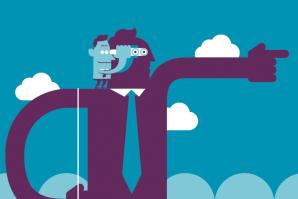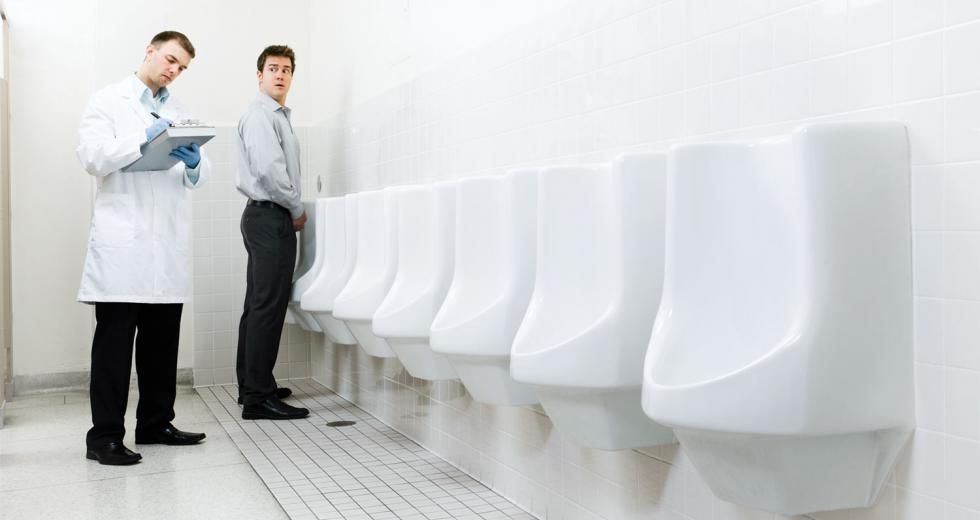A staffer in the office of Bonney Plumbing, Heating, Air & Rooter Service grew concerned after smelling alcohol on an employee headed out to a job site. The staffer immediately notified management, who met the man at the site and also detected the scent. This was enough reasonable suspicion to demand a drug test, which showed the employee had been intoxicated while driving a company vehicle.
The man quit before he could be dismissed under Bonney’s drug-free workplace policy, but representatives of the Sacramento-based plumbing firm say the incident demonstrates the effectiveness of having such a policy in place.
Alcohol and drug use creates “a risk for the company — from liability issues, to injuries to that employee and coworkers, to missed days from work, to a concern about going into customers’ homes,” says Rebecca Mangano, Bonney Plumbing’s human resources manager.
Many employers promote drug testing, a policy wherein employers partner with outside firms to collect and examine urine or other bodily samples from employees for evidence of substance abuse.
The tests can be conducted at random, following a workplace accident or during the application process. But the practice is not without legal risks, as employees occasionally sue on the grounds of discrimination or privacy violations.
Additionally, nonpartisan research weighing the benefits or disadvantages of drug testing is hard to find — a diligent review of press clippings and other Internet searches revealed no independent, empirical analysis. The research generally quoted by drug-testing advocates comes from the Drug and Alcohol Testing Industry Association, a trade group.
According to some experts, there are no nonpartisan entities with the funding or perhaps even the motivation to conduct a sweeping, irrefutable study on the impact of drug testing. Regulators for the automotive and medical industries have long established that cognitive impairment follows consumption of alcohol and certain pharmaceutical medications. That leaves marijuana and other harder drugs, which already are illegal. It is widely recognized that ingesting those substances before doing jobs such as operating machinery or trying to sell cars would be dangerous or at least foolish.
The possible exception is marijuana, which is legal for medical purposes in 17 states. Serious political efforts to legalize the herb for recreational use are under way in five states, including California. In assessing the potential danger, a study by the National Institute on Drug Abuse, which examines substances for their addictive properties, shows that marijuana consumption impairs driving and workplace performance. Beyond reduced motor skills, other commonly noted impairments are diminished decision-making, learning and short-term memory — the same deficits caused by lack of sleep.
But data on the long-term effects of marijuana — say if smoked a day or week before going to work — is spottier. A 2009 study by the Centre for Addictions Research of British Columbia identified problems with the methods used in prior studies on the subject. The Canadian research team concluded that a person is impaired after smoking marijuana for about four hours. However, the researchers noted, “It is not clear that heavy cannabis users represent a meaningful job safety risk unless using before work or on the job.”
Other pertinent data on the benefit of drug testing is anecdotal but worth reviewing. One recent study of 1,200 randomly selected human resource professionals reported that drug testing could reduce workplace incidents and lead to higher levels of employee productivity and attendance. But dramatic improvements were only achieved when those factors were already deemed a problem.
The 2011 study, commissioned by the Drug and Alcohol Testing Industry Association and performed by the Society for Human Resource Management, showed 57 percent of respondents with existing high rates of workers’ compensation incidents reported a decrease in incidents after implementing a drug-testing program. About 9 percent of companies that already had low incident rates observed an improvement.
When asked about the impact on worker efficiency, 81 percent of companies saw no notable increase in productivity after implementing a drug-testing policy.
As for observed changes in absenteeism, 55 percent of companies already struggling with attendance reported an improvement. Oddly, companies enjoying low absenteeism rates said that their drug-testing program somehow led to an increase in absences. But that particular pool of respondents was small and might not have been statistically significant. The margin of error was 3 percent.
The current practice of drug testing has been traced back to the crash of a Navy jet into a U.S. aircraft carrier in 1981. The accident killed and injured many men, and sweeping drug screenings that followed revealed rampant substance abuse on the aircraft carrier and throughout the entire military. President Ronald Reagan responded with an executive order mandating a drug-free federal workplace.
Seven years later, the Drug-Free Workplace Act of 1988 required drug testing for some private federal contractors and all federal grantees. Meanwhile, the topic of drug use took center stage that year during the presidential campaign. In further media exposure, Time magazine ran a cover story titled, Should Drugs Be Made Legal?
Over the succeeding years, nongovernment private companies began drug testing their own employees and applicants, though there has never been a legal requirement. Challenges from the medical marijuana community are a more recent phenomenon. They argue that employers lose great employees by excluding or dismissing them for testing positive for marijuana when there is no evidence it has affected their work.
“My opinion is that (screening for recreational marijuana use) is a discriminatory practice,” says Roland Tiemann, a Sacramento-based medical marijuana attorney.
“You can smoke some weed before you go to bed at night and all its impairing effects would be gone by the morning,” he says. “It would be no different than if you’d had a glass or two of wine that night.”
The difference, says Tiemann, is that a moral stigma remains attached to marijuana. “You’re losing the good employee that you may have invested a lot of money in training over some nonexistent problem.”
Nonetheless, employers that want to move forward with marijuana-related dismissals are supported by case law, according to Matthew Cebrian, employment law attorney and a director at Murphy Pearson Bradley & Feeney, a law firm with offices in Sacramento, San Francisco and Los Angeles.
“Courts have ruled on this and come down on the side of the employer,” Cebrian says. “If an employer drug tests and finds marijuana and you say, ‘We’re going to terminate you because of smoking marijuana,’ but they say it’s for a medical condition, courts have ruled that federal law trumps that. You can absolutely take that action.”
Prescription drugs are another matter. There have been legal challenges related to testing and dismissing workers for abuse of pharmaceuticals, with defendant’s claiming violations of privacy and federal health protection laws.
“The question centers on what if someone has a prescription — which are relatively easy to get — and they’re blatantly abusing that,” Cebrian says. “There really isn’t an answer for that from a court.”
To avoid wrongfully punishing employees with medical needs, South Carolina-based drug testing firm ARC-point Labs sometimes seeks reviews from doctors to determine whether a worker’s medication is being improperly used.
The doctor, acting as a medical review officer, calls the employee to assess his or her prescription and dosage regimen. The employer is notified in cases of abuse.
“If the employee takes a legitimate prescription, it really is no concern to the employer which prescription is being taken,” says Jeff Hastings, president of the Sacramento franchise of ARCpoint testing lab. “What matters is whether or not the employee is safe. That’s for the doctor to decide.”
As for other legal considerations, random drug testing, or exams conducted on an unscheduled basis, has also come under fire in California for violating privacy laws, though exceptions exist in professions where safety is a concern.
“Most employers aren’t going to be able to do it,” says Cebrian from Murphy, Pearson, Bradley & Feeney.
When it is allowable, random testing has to be a truly random and substantiated process. “You can’t just on a Wednesday go and tap someone on the shoulder and say, ‘O.K., it’s your day,’” says human resources consultant Michelle Zuniga with Roseville-based Tevis Insurance Solutions.
As for pre-employment drug screenings, employers must be careful to avoid practices that might be perceived as discriminatory, says Cebrian. For example, some companies opt to only drug test lower-level personnel. There may be a legitimate business reason for doing this — the job may be attractive to individuals with criminal records, for instance. However, a legal concern arises if the position is also unevenly populated with people of color.
“If not administered consistently or screened consistently, (pre-employment screening) could give rise to discrimination claims,” Cebrian says. Win or lose, a company could spend tens of thousands of dollars simply to defend such a case.
Zuniga recommends every employer, regardless of industry, adopt reasonable suspicion and post-accident drug-testing policies. But she does not believe that every company needs to automatically do pre-employment screening, particularly for white-collar jobs that are not safety-sensitive. Some of her clients do screen, she says, and have decided it’s worth the risk of screening out potential good employees.
“They’ve decided that even if they look great on paper skill set-wise, if they don’t pass, they’re willing to forgo that talent,” she says.
At Folsom Lake Hyundai, new hires for every position — from car lot salespeople to upper management — must pass a drug test before employment. Dave Angelone, a director who handles human resources for the dealership, says the policy is clear in all its job postings and is discussed during the interview process.
“The first thing I do when I sit across the table from a candidate is explain to them that we do drug testing,” Angelone says. “And the first thing I ask is whether they’d be able to pass a drug test.”
While the answer is inevitably yes, some candidates fail the test, says Angelone. But the number of applicants testing positive for drugs has decreased as the company has become more transparent about its policy, allowing individuals to screen themselves out of the process, he says.
The dealership also drug tests employees after accidents, though no worker has ever tested positive. The company also may test employees suspected of being intoxicated at work, although that hasn’t happened. If a worker did test positive, he or she would be offered the opportunity to undergo treatment or counseling, says Angelone. A refusal would lead to dismissal.
“What we want to offer, and what we’re hoping to achieve, is a healthy and safe environment for our employees,” Angelone says.
From an employee-rights perspective, drug tests are not inherently bad, says Joe Rose, a labor and employment attorney. Employees, just as employers, deserve a safe workplace. The challenge, he says, is to balance safety with individual privacy. For that reason, Rose believes it makes more sense to only screen employees in safety-related positions.
“I would counsel employers to seriously consider why it is that you’re uniformly drug testing employees of every stripe and character on a pre-employment basis,” says Rose, principal of Rose Law Firm. “How does it all benefit the company or the person’s coworkers?”
Other business litigators advise their clients against all forms of drug testing. The legal risks, they say, don’t outweigh the benefits, especially when there are other ways of determining whether someone is — or will be — a good employee.
“You can judge people more by the quality of their work product than the quality of their urine sample,” says Steven Kronenberg, attorney with Murphy Pearson Bradley & Feeney.
Still, for testing advocates, the price and legal risks are minor when considering the potential benefits of fewer accidents, reduced absenteeism and increased productivity.
“Take that all in balance and it’s pretty cheap to do a $50 drug test,” says Hastings of ARCpoint Labs. “It just is a good business decision.”
Additional reporting by Allen Young
Recommended For You

Rational Approach
Managing mental health in the workplace
A few years ago, Troy Underwood noticed a problem with one of his accountants. The man’s work performance and personal appearance had deteriorated, he talked constantly on the phone with his children and agonized about his domestic life.

The Quick Quit
Employee retention hinges on a smooth onboarding process
Have you ever arrived at work and realized you don’t remember driving there? It’s kind of a weird feeling, but your consciousness was somewhere else while your subconscious did all the work of traveling, turning, merging and parking. You can do this because your commute is so ingrained that it doesn’t involve any real decision-making.



